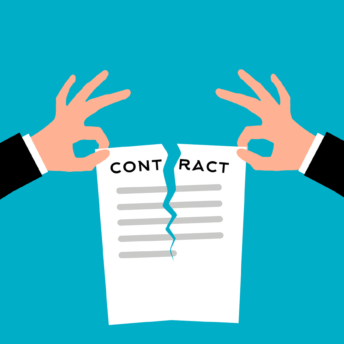Prior to the Mental Capacity Act 2005 and its October 2007 enactment, you could appoint someone to manage your financial affairs through the use of an instrument called an Enduring Power of Attorney (EPA). The EPA was superseded by the Lasting Power of Attorney on October 1, 2007. (LPA).
There are critical differences between the two documents:
EPA’s
- Must be in the legally prescribed format and signed by all parties prior to October 1, 2007.
- It isn’t possible to amend or create a new EPA, but old ones remain valid.
LPAs
- must adhere to the legally mandated format.
- Have a ‘certificate’ component that must be completed by an impartial party to ensure that you, the donor (the person who creates the LPA), understand and are not under duress.
- Can include the names of anyone the donor wishes to be notified upon the LPA’s registration. If no one is to be contacted, a second certificate provider is required.
A lasting power of attorney (LPA) is a legal document that enables you (the ‘donor’) to designate one or more individuals (referred to as ‘attorneys’) to assist you in making decisions or to make such decisions on your behalf. When you create your LPA, you must be at least 18 years old and possess mental capacity (the ability to make your own decisions).
In essence, by creating a Lasting Power of Attorney, you authorise someone you trust to act on your behalf and in your best interests while you are still alive. When you require someone to act on your behalf, it is frequently too late to acquire a Lasting Power of Attorney.
Although powers of attorney come in a variety of forms, they consistently contain two key characteristics:
- The individual appointing the attorney must execute the power of attorney document while fully capable of comprehending what they are agreeing to.
- The individual’s power of attorney terminates upon his or her death (or when specified in the document)
We examine these issues in greater detail in this article, enduring power of attorney vs lasting, and describe the mechanics of using a power of attorney. We are a multidisciplinary law firm with offices in Hale, South Manchester, and London. We are easily accessible to our clients throughout the country. Each power of attorney that we create for our clients is drafted by a highly qualified and experienced solicitor.
It is feasible to create your own Power of Attorney using a variety of websites. Bear in mind, however, that the ramifications of improperly writing a Power of Attorney can be far-reaching, with grave implications. This is why we strongly recommend that you retain the services of a qualified solicitor.
Please click here to find out more about our Wills and Lasting Power of Attorney Services.
Free Initial Telephone Discussion
For a free initial discussion on how we can help you deal with the legal implications of creating a lasting power of attorney, get in touch with us today. We are also experienced in dealing with all aspects of Wills and Probate and we will review your situation and discuss the options open to you in a clear and approachable manner. Early expert legal assistance can help ensure you avoid the stress of dealing with these issues on your own. Simply call us on 0345 901 0445 or click here to make a free enquiry and a member of the team will get back to you.
Why would you need to appoint a Power of Attorney?
There are several reasons why you may require another person’s assistance in making decisions or acting on your behalf:
- This could be a temporary situation, such as being hospitalised and requiring assistance with daily duties such as bill payment.
- If you have been diagnosed with dementia and may gradually lose the ability to make your own decisions, for example, you may need to make longer-term arrangements.
Understanding Power of Attorney – what does “mental capacity” mean?
Mental capacity is defined as the ability to make or communicate precise choices when the situation warrants it. Mental capacity necessitates a comprehension of the circumstance at hand, the justification for the decision, and the expected outcome of the choice.
Certain individuals will be able to make decisions in some circumstances but not in others. For example, they may be capable of selecting a dinner menu but incapable of comprehending or arranging for home insurance. Alternatively, their decision-making capacity may alter everyday.
Slower comprehension or communication does not necessarily reflect a mental capacity disadvantage. For example, dementia does not always reflect an individual’s inability to make autonomous choices. Where a person has trouble communicating a decision, every effort should be taken to eliminate such barriers and support the person in making their own.
Are there many types of Powers of Attorney?
There are various sorts of powers of attorney, and you may establish multiple ones:
Ordinary power of attorney
This includes financial decisions and is valid for the duration of mental capacity. It is useful if you require coverage for a brief length of time (hospital stay or vacation), have mobility issues, or wish to have someone act on your behalf.
Enduring power of attorney (EPA)
EPAs were phased out in October 2007 and replaced by LPAs. However, EPAs created and signed prior to 1 October 2007 should continue to be valid. An EPA governs financial and property decisions and takes effect if you lose mental capacity or wish for someone to act on your behalf.
Lasting power of attorney (LPA)
A lasting power of attorney (LPA) is a legal document that authorises someone you trust, your attorney, to make decisions on your behalf if you ever lose mental ability or no longer choose to make your own decisions. An LPA protects both your financial assets and your health and care. It becomes effective when a person loses mental competence or the desire to make independent choices. If you wish to assure your future protection, you would create an LPA.
LPAs are divided into two categories:
- LPA used to make financial decisions
- LPA for the purpose of making health and care decisions.
LPA used to make financial decisions
A financial LPA may be utilised while you retain mental capacity or it may be invoked solely if you lose capacity.
A financial LPA may comprise the following:
- acquiring and selling real estate
- repaying mortgages
- investing funds
- reconciling accounting
- acquiring and selling real estate
You can either limit your attorney’s decision-making powers or delegate entire decision-making authority to them.
If you’re forming an LPA to manage financial decisions, your attorney must have separate accounts and funds from yours. You can obtain regular updates on the amount of money spent and the amount of money available. If you lose mental capacity, your solicitor or a family member can relay this data to you. This gives another degree of protection.
LPA used for health and care decisions
This covers health and care decisions and is only applicable once mental capacity has been lost. In general, an attorney can make decisions about the following:
- where you ought to reside
- your medical treatment
- what you should eat
- who you should contact
- which social activities you should participate in.
Additionally, you can give your attorney special permission to make life-saving treatment decisions.
How we can help
We have a proven track-record of helping clients create a lasting power of attorney. This also includes all of the different types, even if you need more than one. We are a multidisciplinary firm and have all the expertise inhouse to satisfy the most exacting requirements of our clients. We will guide you through all the necessary legal due diligence in a comprehensive and timely manner. We firmly believe that with the right solicitors by your side, the entire process will seem more manageable and far less daunting.
How to Contact Our Wills and Probate Solicitors
It is important for you to be well informed about the issues and possible implications of creating a Lasting Power of Attorney. However, expert legal support is crucial in terms of ensuring your wishes are met as you would want them to be.
To speak to our Wills and Probate solicitors today, simply call us on 0345 901 0445, or click here to make a free enquiry. We are well known across the country and can assist wherever you are based. We also have offices based in Cheshire and London.





